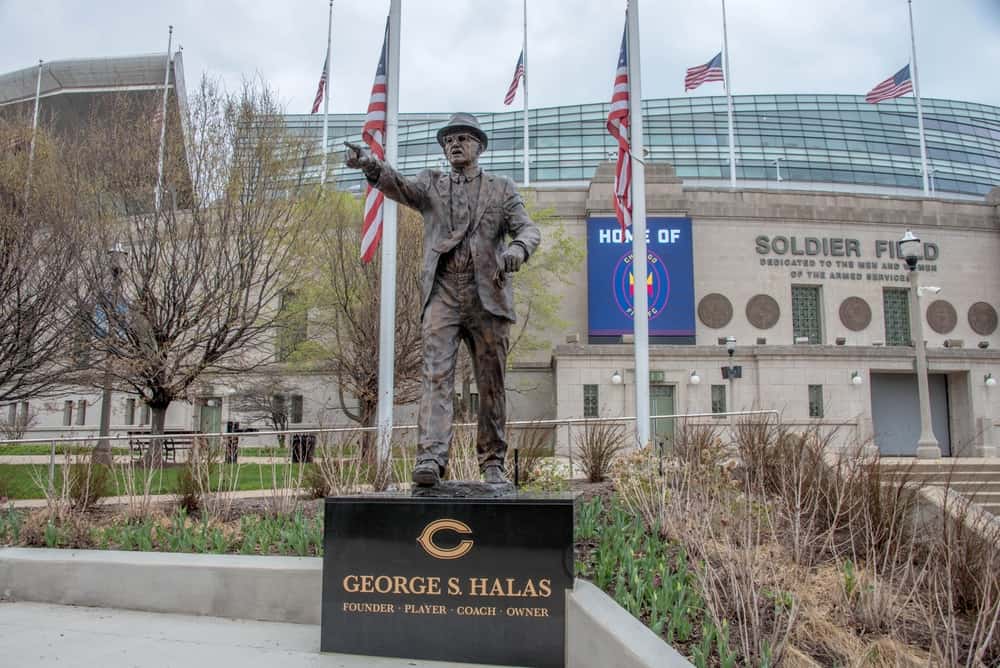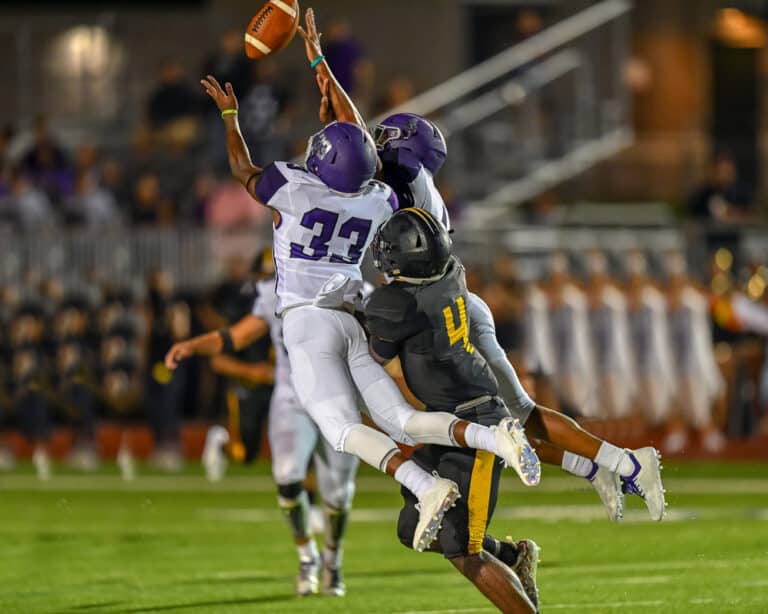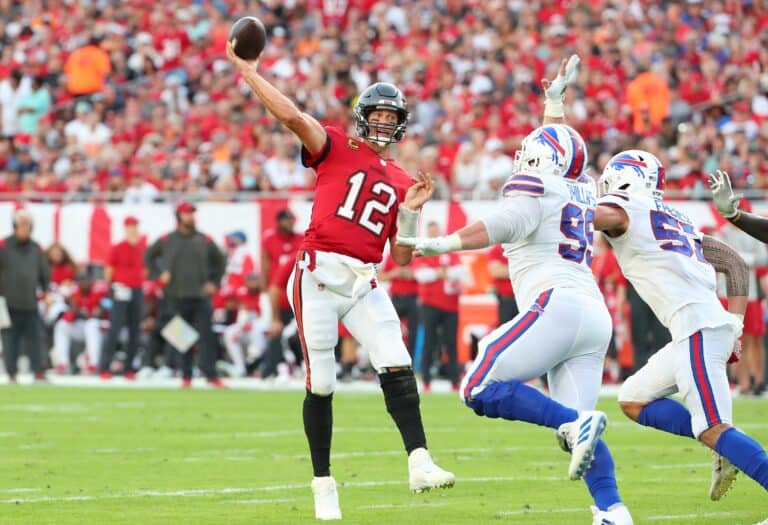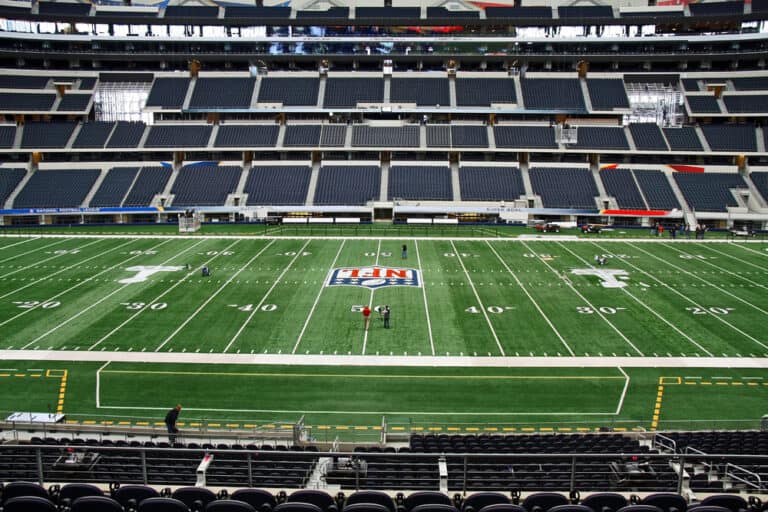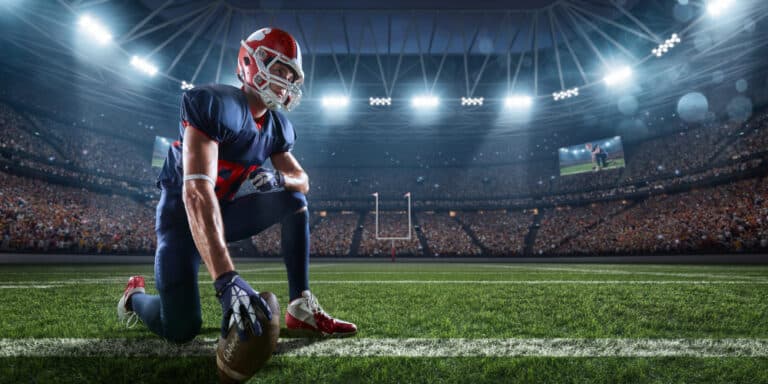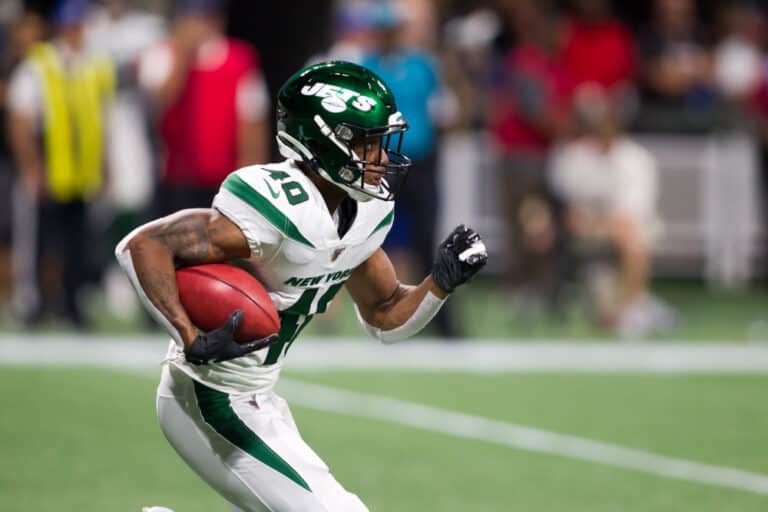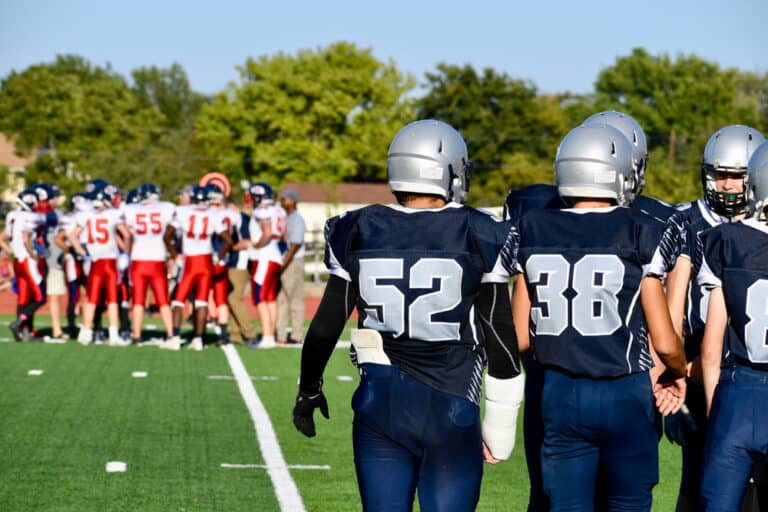Can An NFL Player Own A Team?
Editorial credit: ChicagoPhotographer / Shutterstock.com
Basketball legend Michael Jordan had to sell his 10% stake in the Washington Wizards when he abandoned retirement to play for the NBA team. The NBA does not allow players to have a direct or indirect ownership interest in a team. It is considered a salary cap violation. The NFL also has a salary cap system. So are NFL players also banned from having any ownership of an NFL team?
The NFL doesn’t have a rule forbidding players from owning a team. In fact, George Halas owned the Chicago Staleys, renamed it the Chicago Bears, and played end while coaching. However, current salary cap rules would make it nearly impossible to do that in today’s NFL.
George “Papa Bear” Stanley “Mr. Everything” Halas Sr was unique in American sports history. Like Bo Jackson, Halas played baseball (New York Yankees) and football. But he is mainly known for football, partly due to being an NFL founder. His unique career as a player, coach, and team owner will probably never occur again. NFL ownership rules are complex, and it isn’t just the money.
Is An NFL Team Owner Allowed To Play On The Team?
No rule outright states an NFL player can’t own a team. However, it would be challenging for several reasons, including the salary cap rules.
The NFL salary cap rules are different from those in the NBA. However, they are complicated, leaving a gray area of what to do if a player owned part of a team. It would require special negotiating, and part of their playing salary might have to come out of their owner equity.
Another area where a player’s ownership becomes problematic is what that would mean if they were traded or even if they would be allowed to play for another team. As it is, the NFL does not allow owners to own a second professional football team. Thus, a player-owner that’s been traded could be accused of having split loyalties or purposely throwing a game.
However, the salary cap isn’t the only roadblock to an NFL owning a professional football team.
Buying An NFL Team Requires More Than Money
NFL teams have come to owners in a mirage of ways, nor have they always been tied to great hordes of wealth.
For example, George Halas scooped up his team in 1920 for hundred bucks. In 2022 money, that’s around 1,300 – 1,480 dollars. Admittedly, that’s more than your average American can find under the sofa cushions. But it is a heck of a bargain compared to the cheapest franchise in 2020, the Cincinnati Bangles, which were pegged to be worth 2 billion.
However, you can’t just buy an NFL team, even if you are the type of person with enough wealth to make an impulse purchase worth 40 billion. Owners must also:
- Be an individual (no corporations, religious groups, governments, or non-profits)
- Must have an ownership interest in gambling, such as casino
- Can’t already own an NFL team
- Ownership is put to a vote
There are some exceptions to these rules. For example, some teams are family owned, which was allowed due to when the team was acquired.
But it is the last rule that makes it unlikely an active NFL player would ever succeed in owning a team. If the NFL league thinks you’re going to be a problem in their exclusive club, it doesn’t matter how rich you are; they’ll shut the door in your face. However, once a player is retired, the necessary votes would likely materialize, as the primary “problem” would then be resolved.
Does The NFL Allow Cross-Ownership?
In October 2018, the NFL finally dropped its ban on cross-ownership of professional sports teams. It was a perplexing rule that never made much sense. In comparison, the NFL rule forbidding ownership of two NFL teams makes sense. If somebody owns more than a single team, they might indulge in corruption, such as match-fixing.
The justification in the past for the cross-ownership ban was that it was a competing market. This caused some famous complications. For example, when Stan Kroenke took over the St. Louis Rams in 2010, he had to hand over the Colorado Avalanche (NHL) and the Denver Nuggets (NBA) to his son. Even the 1997 amendment to the ban didn’t help Kroenke’s case.
In 1997, the ban was tweaked so an NFL owner could own a second pro-sports team if:
- It wasn’t another NFL team
- It was in the same city as the already owned NFL team
- OR it was in a city that didn’t have an NFL team
This 1997 tweak is how Paul Allen bought the Seattle Seahawks later that same year when he already owned the Portland Trailblazers. Since Portland didn’t have an NFL team, he could own both. Meanwhile, Kroenke had to wait eight years before he could officially own his other teams again.
Who Owns The Green Bay Packers?
The Green Bay Packers are unique as they are essentially owned by their fans. The team is technically a publicly owned non-profit, which is no longer allowed in today’s NFL rules. However, because the arrangement dates back to 1923, they were given an exception due to being “grandfathered in.”
The Green Bay Packer’s setup is unusual, even in the stock market world. Unlike certain companies, a billionaire can’t stealthily buy many shares and then stage a takeover. Instead, there is a cap on how many shares one stockholder may own, around 4%.
Nor is getting your hands on stock easy. Ownership sales are rare. For example, the sixth one in the team’s history occurred in November 2021. Even stranger, the stocks do not produce wealth, can’t be sold, or give shareholders voting rights.
Thus, the 2021 shares were nothing more than a fundraising stunt. Of course, due to this unique set of circumstances, it is perfectly possible players from any NFL team bought a token share for fun. But they’ll have as much “rights” over the team as that guy selling folks the Brooklyn bridge.
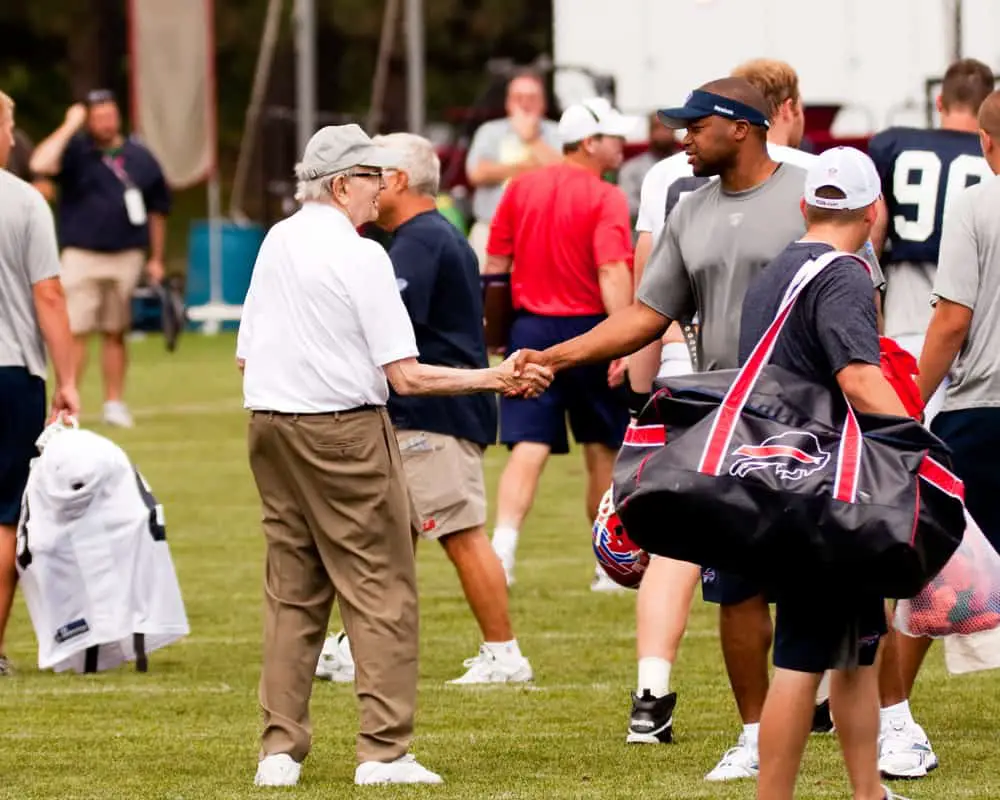
Conclusion
In modern NFL, it would be difficult for a player to own an NFL team. Even if they managed to navigate most hurdles, the NFL league would probably prevent it with a vote. However, there is no rule forbidding it, and it was done way back at the start of the NFL by George Halas.
References
- https://www.forbes.com/sites/darrendahl/2017/11/28/could-professional-athletes-own-the-teams-they-play-for/?sh=111612b513f9
- https://profootballtalk.nbcsports.com/2018/10/17/nfl-finally-ditches-cross-ownership-policy/
- https://bleacherreport.com/articles/1690767-what-does-it-take-to-be-the-owner-of-an-nfl-franchise
- https://www.the-sun.com/sport/4461484/who-owns-green-bay-packers-nfl/
- https://www.sportscasting.com/easy-forget-michael-jordan-nhl-owner/
- https://www.britannica.com/biography/George-Halas

